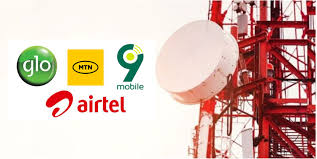Many Nigerians are increasingly changing their mobile networks in search of better service quality and affordable packages. The trend, popularly called “network hopping,” has become more common in the telecom market as subscribers demand improved coverage, competitive pricing, and better customer care.
A recent report shows that more users are now exploring the option of mobile number portability, which allows them to keep their phone numbers while switching to another provider. This has helped consumers test different networks without losing their long-time contacts.
Several reasons are pushing Nigerians to make the switch. Poor network coverage remains the biggest factor, as many subscribers complain that their current providers often leave them stranded in areas with weak or no signal. Others are chasing cheaper data and voice bundles as telecom operators compete with one another through promotions and special offers. In addition, some users say they prefer networks with more responsive customer service, especially when dealing with issues like overbilling, SIM swaps, or reconnection.
A global survey by InMobi confirmed this pattern, showing that over half of mobile users consider network quality and coverage as the main reasons for switching. Another major factor highlighted was the search for better value in pricing packages.
The data from the Nigerian Communications Commission (NCC) supports this growing trend. In January 2025, the number of Nigerians who ported their mobile numbers jumped by 190 percent, with 8,708 subscribers switching operators. This was a sharp increase compared to 2,998 in December 2024.
Among the four main operators, 9mobile was the biggest loser. It lost 6,716 customers in January alone, while only seven people moved to its network. In contrast, MTN gained 5,551 customers but lost 1,188 during the same period. Airtel also added 2,414 new users, losing only 399. Globacom gained 736 but lost 405.
The figures show that subscribers are no longer afraid to walk away from poor service providers. Over the past six years, nearly 485,348 Nigerians have switched networks, a clear sign of the changing landscape in the telecom industry.
Despite these movements, there are still challenges preventing more people from porting their numbers. Some subscribers are not fully aware of the process, while others complain of technical issues during the switch. There is also what experts call “inertia,” meaning many customers simply stick with their current network even when they are unhappy, because of fear of the unknown or lack of trust in the new operator.
In response, telecom companies are increasing investments in infrastructure to keep their customers. Operators are expanding their 4G and 5G capacity, ordering new equipment, and rolling out more sites to improve coverage in underserved areas. This is part of efforts to reduce complaints and ensure subscribers stay loyal.
Industry watchers say the rise in porting activity is good for competition, as it forces operators to improve their services and offer more value for money. For consumers, it means they now have more power to demand quality and fairness in a market that is becoming more competitive.
As things stand, Nigerians will likely continue to hop between networks until they find the one that gives them both affordability and reliability. With millions of subscribers spread across MTN, Airtel, Globacom, and 9mobile, the battle for customer loyalty is expected to grow even stronger in 2025.
